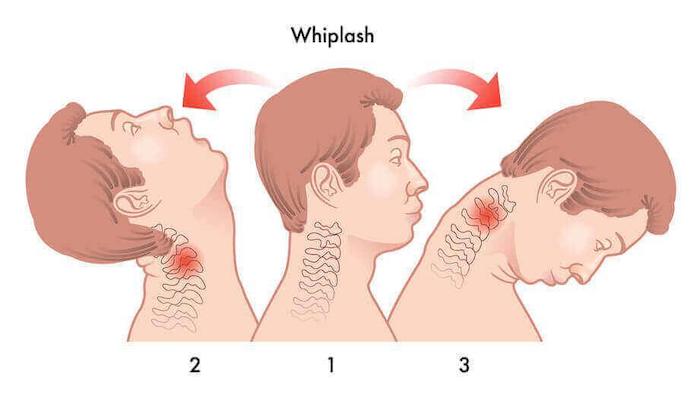
Everyone associates whiplash with car accidents, but any impact that's strong enough to make your neck snap causes the same type of injury.
No matter what causes your injury it's important to have your neck examined at Florida Pain Medicine to be sure you don't develop comp9lications. The level of your initial pain doesn't always reflect the extent of your injuries. And an untreated whiplash injury increases your risk of developing long-lasting problems.
Do you wonder if your sore neck is a whiplash when you weren't in a car accident? Here's what you should know about how this type of injury occurs.
Whiplash Defined
A whiplash injury occurs when your neck (cervical spine) quickly snaps back-and-forth or side-to-side. Your neck first hyperextends in one direction and then immediately reverses and goes in the opposite direction (hyperflexion).
The energy of the movement forces the tissues in your neck beyond their normal range of motion. As a result, you pull the ligaments, tendons, and muscles in your neck.
In most cases, a whiplash only injures the soft tissues supporting your neck. However, in severe cases, you could also damage the cervical vertebrae, nerves, and discs. You may also have a concussion.
Whiplash Causes
Though car accidents account for most whiplash injuries, you can experience the same type of neck movement during other activities. A sudden, forceful impact anywhere on your body and from any source can cause the same snapping motion in your neck.
Other causes of whiplash include:
- High-impact sports (football, skiing, boxing, gymnastics snowboarding)
- Physical abuse (a blow to the head or being pushed or shaken)
- Riding a roller coaster (and other amusement park rides)
- Horse riding accident
- Falling off a bike
- Having a motorcycle accident
- Taking a hard fall
A whiplash injury can range from a mild neck sprain to severe damage like fractured or dislocated vertebrae.
Whiplash Symptoms
After a whiplash, you could have immediate symptoms or they may not appear for a few days. When you’re injured, your body releases adrenaline and endorphins. These chemicals naturally reduce your pain right after the injury. Then you have a delayed reaction as they wear off.
When symptoms begin, you may experience:
Neck Pain And Stiffness
Even if you have a mild whiplash injury, you will have some neck pain and stiffness. In addition to soft tissue damage, you may have pain caused by inflammation and muscle spasms. The combination of pain and tight muscles results in stiffness and limited neck movement.
Back And Shoulder Pain
After neck pain, upper back pain is the next most common symptom caused by whiplash. The force of your neck movement can stretch and damage soft tissues that extend into your shoulders and back.
Headaches
Headaches are also common following a whiplash. When you injure the tissues in your neck, the pain goes up the nerves and into your head. Whiplash can also cause symptoms such as dizziness, nausea, sensitivity to light, and difficulty moving your neck. A headache, dizziness, and nausea are also signs of a possible concussion.
Unusual Sensations
If the whiplash injures a nerve, you may experience tingling and burning. These sensations begin in your neck and travel through your shoulders and down your arms. A severely damaged nerve may cause muscle weakness in your arms and hands.
Hoarseness And Difficulty Swallowing
If the movement in your neck damages your esophagus and larynx (voice box), you can have symptoms such as hoarseness and difficulty swallowing.
Dizziness And Vertigo
Nerve signals originating in your neck have an essential role in maintaining your balance and equilibrium. A whiplash injury can disrupt this process, leading to vertigo, dizziness, and the loss of balance.
Precision Pain Care and Rehabilitation has four convenient locations in Richmond Hill – Queens and New Hyde Park, Lindenhurst, and Valley Stream – Long Island. Call the Queens office at (718) 215-1888, or (516) 419-4480 for the Long Island offices, to arrange an appointment with our Interventional Pain Management Specialist, Dr. Jeffrey Chacko.













